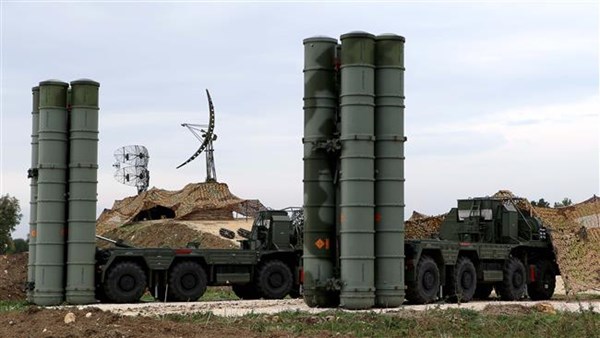Russia creates secret arms payment mechanism with India
After nearly a year of being at an impasse, Russia’s arms deal negotiations with India have moved forward.
Moscow and Delhi have agreed to a new settlement scheme for defense contracts, which have been under US sanctions since 2018, said Vladimir Drozhzhov, deputy director of Russia’s Federal Service for Military-Technical Cooperation, on Tuesday.
The details of how this mechanism works are classified, Drozhzhov emphasized. The scheme, which is “fully agreed upon”, is “permanent and mutually acceptable to both parties”, and will be in place for “the entire duration of the signed contracts”.
The new mechanism will enable Russia to sell India S-400 Triumph anti-aircraft missile systems. “The first system will be delivered within 24 months after the transfer of the prepayment,” noted Drozhzhov. This will take place “at the end of 2020 or a bit later,” and the deliveries will be completed by 2024-25.
India and Russia have also agreed on payment schemes for deals involving project 11356 frigates and 18 Su-30MKI fighters.
“We have [also] received offers to supply more than 20 modernized MiG-29 fighters and a request to upgrade around 450 T-90 tanks,” Drozhzhov noted.
The law imposing sanctions on Russia’s defense export sector came into force in the US at the end of November 2017. Since 29 January last year, the White House has been authorized to impose restrictions on any organizations involved in “significant deals” with Russian defense enterprises. This concerns both the buyers and the banks facilitating the transactions.
In April last year, India suspended its payments to Russia’s defense export agency, Rosoboronexport, for existing contracts, and put on hold the negotiations concerning new ones, because the Indian banks had begun to block the transactions out of fear of secondary sanctions.
Rosoboronexport is considering the possibility of transitioning to payments in national currencies – Indian rupees, rubles, UAE dirhams, said Alexander Mikheev, director of the agency at the time.
Russia resolved a similar payments issue with Indonesia, which purchased 11 Su-35 fighters, through a barter scheme. Instead of currency payments, Russia accepted palm oil, rubber crumbs and other Indonesian goods, which covered roughly half of the cost ($1.1 billion), a source close to Rosoboronexport told the Vedomosti news agency.
